English
 Processing Request
Processing Request
Context: Find author bios and encyclopeia entries on literature movements or works.
- Oxford Quick Reference (Oxford University)More than a million entries on historical figures, movements on a vast range of topics including literature.
- Source Reference (Infobase) Background information to start your research from more than 2 million articles AND includes links to JSTOR (academic articles), and Opposing Viewpoints (news).
Deeper Dive: Find academic writing on literature topics in journal articles and books:
- Academic Search Complete 1000s of academic journals,reports,and conference proceedings from most disciplines including humanities and literature.
- JSTOR Scholarly full-text journal articles, eBooks, and primary sources/historical texts, from the 16thcentury to 2019 in most subjects. Note: Select Content I Can Access (it will NOT be underlined if selected.
- Project Muse (Johns Hopkins) 100s of journals in the humanities and social sciences. Note: Limit to full text by clicking the button next to Only content I have access to after your search.
- OED - Oxford English Dictionary (Oxford University) – I like Merriam Webster too. OED most interesting to budding etymologists and people taking Latin or Greek, I think. Maybe the thesaurus useful or the history of certain words – like when was artificial intelligence first used and who used it.
Recent Context: Find book reviews, author news, and contributions by authors to publications.
- New York Times 1851 through today NYT has substantive book reviews. To register, select whether you are student or faculty and create an account with your tas.edu.tw or students.tas.tw email address. Use the same login to access the NYT app! Renew your account yearly. UPDATED NYTimes INSTRUCTIONS
- Access World News (Newsbank) Searchable database of more than 11,000 newspapers and magazines. Current publications.
- Sora Includes recent magazines about literature and the New Yorker which features short works by contemporary authors.
- Flipster Magazines Includes The Atlantic.
- The Economist 1997 to the present. Search your contemporary author or topic for reviews or news. Register with your tas email account. Use the app after registering via our website! Instructions.
Learn context, historical policies/laws/beliefs that led to the issue you chose, and how people/organizations/movements addressed the issue.
Source Reference (Infobase) - Background information to start your research from more than 2 million articles AND includes links to JSTOR (academic articles), and Opposing Viewpoints (news).
As you learn more, consider narrowing your topic if it is too broad ( use limiters such as location or specific field impacted, i.e., instead of Regulations on AI, narrow to US governmental regulations on AI use by the military). See these slides for tips - Refining your Research Topic.
Selected Sites/Orgs relevant to Multiple Movements
ACLU - American Civil Liberties Union - learn about what's happening across some of the most pressing civil liberties issues of our time.
UN Sustainable Development Goals - poverty, health, education, human rights, climate, etc.
Understanding different sides of the issue will help strengthen your argument. Who is calling for change on this issue and why? Who is maintaining the status quo and why?
Here are some sources to find a variety of perspectives:
Opposing Viewpoints in Context (Gale) - presents an overview of an issue and different points of view on that issue.
AllSides - Presents news on issues and categorizes them by Left, Right, or Center
Newspapers
Find all of our newspaper subscriptions and databases on our Current Events page including:
NYTimes (sign up for free annual subscription here)
These sources include Taiwan-specific news:
Press Reader - searches large collection of magazines and newspapers
Access World News (News Bank) - Searches hundreds of newspapers including Taipei Times, Taiwan News, and South China Morning Post
Find Taiwan-specific research resources here including:
National Digital Library of Theses & Dissertations in Taiwan
National Central Library Taiwan Periodical Literature
Evaluate your sources critically
Practice lateral reading (Crash Course on Lateral Reading) to check your source for authority/bias by going to other sites to see:
- Who is behind the information?
- What is the evidence to support their claims?
- What do other sources say about the organization and its claims?
Find evidence to persuade your audience with both logos and pathos.
Logos - Statistics/Infographics
Look for compelling statistics/infographics/stories that emphasize why this issue needs our attention. What might move someone to action?
Sweetsearch.com - use keywords like data, statistics, evidence, infographics
Pathos - Stories/Anecdotes/Calls to action
Find compelling stories/anecdotes to put a human face on the issue by adding keywords to your search terms like “activists” or “people impacted by (your issue)” or “interviews” or "human interest stories about (your issue)". If your issue is local, try reaching out to organizations or individuals who are working on this issue and ask for information on what they are doing and what they need and why.
Calls to Action: Let people know what specific actions you are calling for to make change. Places to find example calls to action online include:
Inspired to dig deeper into activism on your issue? Check these out:
Remember that you need to create an MLA Style Works Consulted page for all the sources you learned from.
OWL Purdue is a great site for instructions on how to cite your sources. You can also use online citation managers like Zotero or Noodle Tools (sign in with school email using Microsoft 365 link at bottom of login page). Feel free to ask Ms. Wile or Dr. Warrick for help.
.png)
